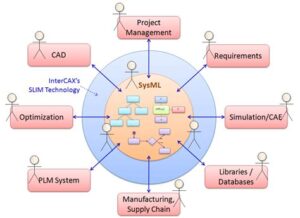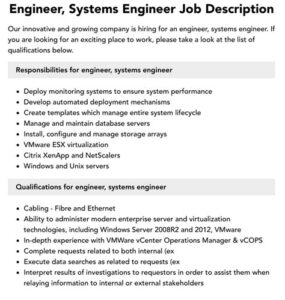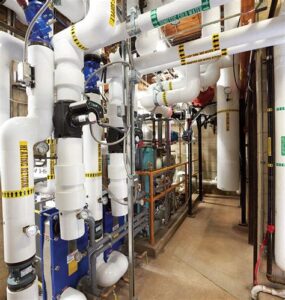Explore the University of Virginia’s Systems Engineering program, admission requirements, curriculum highlights, career opportunities, and student support services for prospective students.Embarking on a journey in the field of systems engineering opens the door to a multitude of opportunities, and the University of Virginia (UVA) stands as a premier institution for aspiring engineers. With a rich history of academic excellence and innovation, UVA’s Systems Engineering program equips students with the essential skills and knowledge to thrive in an increasingly complex technological landscape. Whether you’re interested in optimizing processes or designing robust systems, UVA provides a comprehensive curriculum designed to prepare you for the challenges of the real world. In this article, we’ll explore the unique features of the University of Virginia’s Systems Engineering program, including admission requirements, curriculum highlights, career prospects, and the extensive support services offered to students. Join us as we delve into how UVA can help you transform your passion for systems engineering into a successful career.
Overview Of University Of Virginia’s Systems Engineering Program
The University of Virginia’s Systems Engineering Program is designed to equip students with a comprehensive understanding of complex engineering systems and the methodologies required to design, analyze, and manage these systems effectively. This program emphasizes an interdisciplinary approach, merging principles from engineering, mathematics, and management to prepare graduates for real-world challenges.
Students benefit from a curriculum that blends theoretical knowledge with practical applications, ensuring they develop the skills needed to drive innovation and efficiency in various sectors, including technology, manufacturing, and logistics. The program places a strong emphasis on teamwork and collaboration, mirroring the realities of a professional environment where cross-functional teams are essential for success.
Moreover, the University of Virginia stands out for its commitment to research and development, providing students with opportunities to engage in groundbreaking projects. This involvement not only enhances students’ learning experiences but also fosters connections with industry leaders and research institutions.
In summary, the University of Virginia’s Systems Engineering Program offers a robust education that prepares graduates to excel in a dynamic and ever-evolving field, meeting the demands of modern engineering challenges while paving the way for innovative solutions.
Key Admission Requirements For University Of Virginia Systems Engineering
To gain admission to the University of Virginia’s esteemed Systems Engineering program, prospective students must meet several key requirements. These criteria ensure that applicants possess the foundational knowledge and skills necessary for success in this rigorous field.
- Academic Credentials: Applicants are typically required to hold a bachelor’s degree in engineering, science, or a related field from an accredited institution. A strong academic record, particularly in mathematics and technical courses, is crucial.
- GPA Standards: A minimum cumulative GPA of 3.0 on a 4.0 scale is generally expected, although competitive applicants often exceed this threshold.
- Standardized Test Scores: While the GRE requirement has been waived for many applicants, submitting strong GRE scores can enhance a candidate’s application, particularly for those who may not have a robust quantitative background.
- Letters of Recommendation: Candidates should provide two to three letters of recommendation from professionals or academics who can speak to their abilities and potential for success in graduate studies.
- Statement of Purpose: A well-crafted statement outlining the applicant’s career goals, research interests, and reasons for choosing the University of Virginia is essential. This document should reflect the applicant’s passion for systems engineering and any relevant experiences that have shaped their interest.
- Resume or Curriculum Vitae: A current resume detailing education, work experience, internships, and relevant skills is also required.
- Interview: Some applicants may be invited for an interview as part of the selection process, offering an opportunity to discuss their interests and qualifications in more depth.
Meeting these admission requirements is vital for those looking to join the University of Virginia’s Systems Engineering program, setting the stage for advanced studies and a successful career in this innovative discipline.
Curriculum Highlights In University Of Virginia’s Systems Engineering Degree
The University of Virginia’s Systems Engineering program offers a comprehensive curriculum designed to equip students with the skills and knowledge necessary to tackle complex engineering problems. The curriculum emphasizes a systems approach, integrating various disciplines and methodologies. Here are some key highlights:
- Core Courses: Students will engage in foundational courses covering essential topics such as systems thinking, systems architecture, and probability models. These courses establish a robust base for advanced study.
- Elective Specializations: The program allows students to tailor their educational experience through a variety of electives. Areas of focus may include aerospace systems, supply chain management, and healthcare systems.
- Interdisciplinary Collaboration: Many courses encourage collaboration with other departments, particularly in areas like business and information technology, fostering a multidisciplinary perspective that is vital for systems engineers.
- Capstone Project: The curriculum culminates in a capstone project where students apply their learned concepts to real-world problems, often in partnership with industry professionals or community organizations.
- Research Opportunities: Students are encouraged to participate in research alongside faculty members, thereby gaining hands-on experience in cutting-edge systems engineering projects.
- Industry-Relevant Tools: The program incorporates training on various software and analytical tools used in systems engineering practice, ensuring graduates are prepared for the workforce.
Overall, the Systems Engineering degree at the University of Virginia is designed to produce graduates who are not only technically proficient but also skilled in problem-solving and critical thinking, ready to make impactful contributions in their chosen fields.
Career Opportunities After Studying Systems Engineering At University Of Virginia
Graduating from the university of Virginia’s Systems Engineering program opens up a plethora of career opportunities across various industries. The interdisciplinary nature of the program equips students with skills applicable in numerous fields, enhancing their employability. Here are some of the top career paths available to graduates:
| Job Title | Industry | Average Salary |
|---|---|---|
| Systems Engineer | Technology | $85,000 |
| Project Manager | Construction | $70,000 |
| Data Analyst | Finance | $80,000 |
| Operations Research Analyst | Consulting | $90,000 |
| Quality Assurance Engineer | Manufacturing | $78,000 |
With the increasing reliance on technology and data-driven decision-making, systems engineering graduates are well-positioned to enter high-demand roles. Potential employers range from tech giants and consulting firms to government agencies and healthcare organizations. Furthermore, graduates often pursue advanced degrees or certifications to further specialize in their chosen fields, adding to their career prospects.
The university of Virginia not only provides a strong academic foundation but also facilitates networking opportunities through internships and collaborative projects, which are vital for securing rewarding positions post-graduation.
Student Support Services At University Of Virginia For Systems Engineering Majors
The University of Virginia offers a comprehensive range of support services designed specifically for students majoring in Systems Engineering. These services are aimed at enhancing the academic experience and ensuring that students have the resources they need to succeed both in their studies and future careers.
One of the key support services includes academic advising, where students can receive guidance on course selection, degree requirements, and career planning. The advising staff is knowledgeable about the Systems Engineering curriculum and can help tailor an academic plan that aligns with individual goals.
Additionally, the University of Virginia provides access to various tutoring and mentoring programs. These programs connect Systems Engineering students with peers and faculty members who can offer assistance in challenging subjects and help with academic skills improvement.
Career services are another critical component of student support. The university hosts career fairs, workshops, and networking events specifically for Systems Engineering majors. This not only helps students build connections with potential employers but also provides insights into job market trends and expectations.
Moreover, there are dedicated resources for mental health and wellness, including counseling services and wellness programs. The University of Virginia believes in fostering a holistic approach to education, and mental well-being is a significant part of that philosophy.
Lastly, the online platforms and portals provided by the University of Virginia facilitate easy access to academic resources, including research materials and course announcements, further enhancing the learning experience for Systems Engineering students.
Frequently Asked Questions
What programs does the University of Virginia offer in systems engineering?
The University of Virginia offers both undergraduate and graduate programs in systems engineering, focusing on areas such as systems design, optimization, and management of complex engineering systems.
What are the career prospects for graduates of the systems engineering program at UVA?
Graduates of the systems engineering program at UVA have a wide array of career prospects, including roles in industries such as aerospace, healthcare, manufacturing, and information technology, with positions in project management, systems analysis, and consulting.
How does the curriculum in systems engineering at UVA incorporate hands-on experience?
The curriculum at UVA emphasizes hands-on experience through design projects, laboratories, internships, and partnerships with industry, allowing students to apply theoretical knowledge to real-world problems.
What makes the University of Virginia’s systems engineering program unique?
UVA’s systems engineering program is unique due to its interdisciplinary approach, combining engineering principles with business acumen, and its emphasis on collaborative learning and problem-solving.
Can students engage in research within the systems engineering program at UVA?
Yes, students at UVA can engage in research opportunities within the systems engineering program, working alongside faculty on innovative projects that address current challenges in the field.
What kind of facilities and resources are available to systems engineering students at UVA?
Students in the systems engineering program at UVA have access to state-of-the-art laboratories, research centers, and resources, including simulation tools and software for systems modeling and analysis.
Are there opportunities for networking and professional development for students in the systems engineering program at UVA?
Yes, UVA provides numerous networking and professional development opportunities through workshops, industry conferences, alumni events, and student organizations specifically focused on engineering and systems innovation.





